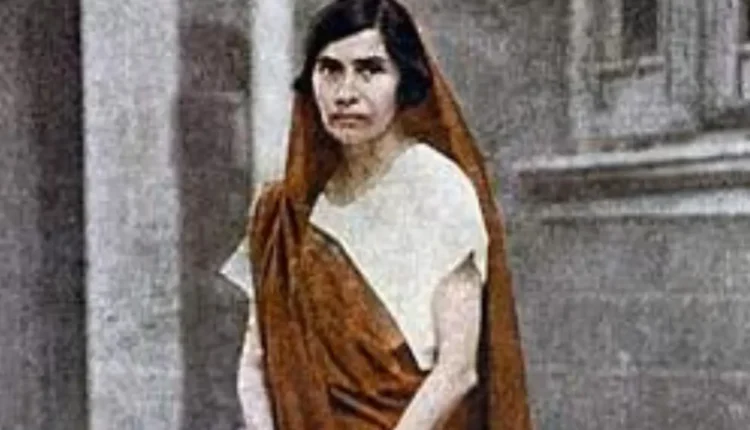Perin Ben Captain (1888–1958), a distinguished Indian freedom activist and social worker, etched her name in the annals of history with her unwavering commitment to India’s independence and social upliftment. As the granddaughter of the renowned intellectual and leader Dadabhai Naoroji, Perin Ben Captain’s legacy is a testament to her indomitable spirit and dedication to the nation.
Her illustrious contributions were recognized by the Government of India in 1954 when she was honored with the Padma Shri, the fourth highest Indian civilian award, making her one of the first recipients of this prestigious accolade.
A Remarkable Early Life of Perin Ben Captain
Born on October 12, 1888, in Mandvi, Kutch district of Gujarat, Perin Ben Captain hailed from a prominent Parsi family. Her father, Ardeshir, a medical doctor and the eldest son of Dadabhai Naoroji, and her mother, Virbai Dadina, instilled in her the values of service and education.
The eldest of eight children, Perin faced the tragedy of losing her father at the tender age of five. Despite this early loss, she pursued her education with determination, completing her early schooling in Mumbai.
Education and Early Activism
Perin’s academic journey took her to the University of Paris III: Sorbonne Nouvelle, where she earned a degree in French. It was in Paris that her path crossed with the revolutionary Bhikaiji Cama. Immersed in the vibrant circles of Indian and international activists, Perin became involved in the plan to release Vinayak Damodar Savarkar after his arrest in London.
Her participation in the Egyptian National Congress at Brussels in 1910 alongside Savarkar and Cama marked the beginning of her deep involvement in the freedom struggle. Additionally, she engaged with Polish émigré organizations in Paris, supporting their revolt against the Czarist rule in Russia.
Return to India and Gandhian Influence
Returning to India in 1911, Perin Ben Captain’s life took a transformative turn when she met Mahatma Gandhi. Inspired by his principles of non-violence and self-reliance, she began working closely with him by 1919.
Embracing the Swadeshi movement, she adopted Khadi clothing in 1920, symbolizing her commitment to India’s economic independence. In 1921, she played a pivotal role in establishing the Rashtriya Stree Sabha, a women’s movement rooted in Gandhian ideals, further cementing her dedication to social reform.
A Marriage of Equals
In 1925, Perin married Dhunjisha S. Captain, a lawyer who supported her activist endeavors. Though the couple had no children, their partnership was marked by mutual respect and shared values.
Perin continued her activism post-marriage, serving on numerous councils of the Indian National Congress. Her election as the first woman president of the Bombay Provincial Congress Committee in 1930 was a significant milestone, reflecting her leadership and influence in the freedom movement.
Imprisonment and Continued Struggle
Perin Ben Captain’s involvement in the Civil Disobedience Movement led to multiple incarcerations. Her resilience and determination remained unshaken despite these hardships.
When the Gandhi Seva Sena was reconstituted in the 1930s, she was appointed its honorary General Secretary, a position she held with distinction until her death in 1958. Her lifelong dedication to the cause of Indian independence and social justice left an indelible mark on the nation.
Recognition and Legacy
In 1954, the Government of India introduced the Padma civilian award system, and Perin Captain was among the first to be honored with the Padma Shri. This recognition was a fitting tribute to her immense contributions to the country. Her legacy continues to inspire generations, reminding us of the power of dedication, courage, and unwavering commitment to the greater good.
Also Read:Khurshedben Naoroji: A Melodious Force in the Fight for Freedom

